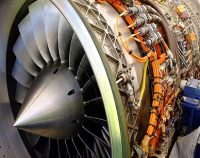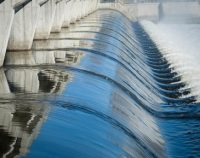Thermodynamics: 8 PDH
$48.00
This course provides a detailed overview of Thermodynamics Principles and Practices including thermodynamic principles in practical industrial, commercial and residential applications. The student will comprehend, analyze and solve various types of practical thermodynamic problems through several case studies. Laws, equations, graphs, charts, tables and diagrams, pertaining to various thermodynamics concepts, are covered and utilized in the analysis and solution of the case study problems.
SPECIFIC KNOWLEDGE OR SKILL OBTAINED
This course teaches the following specific knowledge and skills:
- Energy concepts and extension/application of the law of conservation of energy
- Conversion of thermal energy to electricity through steam turbines and electric generators
- Understanding and application of Steam Tables
- Fundamental and essential concepts such as entropy, enthalpy, heat of fusion, heat of sublimation, latent and sensible heat
- Thermodynamic processes
- Heat engine cycles
- Pyschrometric analysis based on psychrometric chart
- Refrigeration cycle related numerical analysis utilizing Pressure –Enthalpy Charts
CERTIFICATE OF COMPLETION
You will be able to immediately print a certificate of completion after passing a 30 question multiple-choice quiz. The quiz can be retaken unlimited times until a passing grade of 70% or better is earned. This course satisfies 8 professional development hours (PDH) of continuing education.
Related Courses
Building Envelope Impact on HVAC Energy Use: 3 PDH
$18.00 Add to cartHow airtight are the buildings you are responsible for? What is the energy load and indoor air quality like in your buildings? The only way to know is to perform a study. Despite common assumptions, measurements have shown that typical U.S. commercial buildings are not particularly airtight. In this course we present a recent simulation study on the impact of improving envelope airtightness in U.S. commercial buildings. You get documented, verifiable facts, report charts and graphs illustrating the findings, and a discussion from the report on the results of the study, Investigation of the Impact of Commercial Building Envelope Airtightness on HVAC Energy Use.Instructor: Seth Grablow, PEHow airtight are the buildings you are responsible for? What is the energy load and indoor air quality like in your buildings? The only way to know is to perform a study. Despite common assumptions, measurements have shown that typical U.S. commercial buildings are not particularly airtight.
In this course we present a recent simulation study on the impact of improving envelope airtightness in U.S. commercial buildings. You get documented, verifiable facts, report charts and graphs illustrating the findings, and a discussion from the report on the results of the study, Investigation of the Impact of Commercial Building Envelope Airtightness on HVAC Energy Use.
SPECIFIC KNOWLEDGE OR SKILL OBTAINED
This course teaches the following specific knowledge and skills:
- Discuss the reasons for performing a study
- Understand the method of analysis regarding building envelope tightness
- Describe the buildings used for the study
- Understand which climates allow for the most HVAC savings
- Explain the results of the study
CERTIFICATE OF COMPLETION
You will be able to immediately print a certificate of completion after passing a 10 question multiple-choice quiz. The quiz can be retaken unlimited times until a passing grade of 70% or better is earned. This course satisfies 3 professional development hours (PDH) of continuing education.
Preview CourseClick “Preview Course” to View Prior to PurchaseClick “Add to Cart” to Purchase and Access QuizFluid Flow: 4 PDH
$24.00 Add to cartFluid flow and practical fluid mechanics is essential to any engineer's knowledge base. This course will overview the basic principles of fluid flow including the three key attributes to solve all fluid problems. Bernoulli Equation will be discussed in detail to enable understanding of different types of energy in a fluid stream. Laminar and turbulent flow, head loss, and factors affecting head loss will also be dicussed in detail and explained with practical problems.Instructor: Seth Grablow, PEFluid flow and practical fluid mechanics is essential to any engineer's knowledge base. This course will overview the basic principles of fluid flow including the three key attributes to solve all fluid problems. Bernoulli Equation will be discussed in detail to enable understanding of different types of energy in a fluid stream. Laminar and turbulent flow, head loss, and factors affecting head loss will also be dicussed in detail and explained with practical problems.
SPECIFIC KNOWLEDGE OR SKILL OBTAINED
This course teaches the following specific knowledge and skills:
- Review of key principles
- Shear Stress in a fluid
- Conservation of Mass
- Conservation of Momentum
- Reynolds number
- Laminar versus turbulent flow
- Bernoulli Equation
- Major head losses
- Minor head losses
- System level analysis
CERTIFICATE OF COMPLETION
You will be able to immediately print a certificate of completion after passing a 15 question multiple-choice quiz. The quiz can be retaken unlimited times until a passing grade of 70% or better is earned. This course satisfies 4 professional development hours (PDH) of continuing education.
Preview CourseClick “Preview Course” to View Prior to PurchaseClick “Add to Cart” to Purchase and Access Quiz




